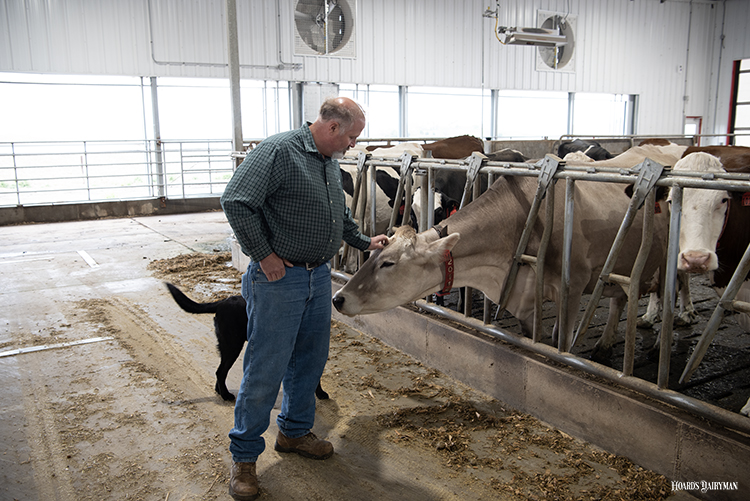
During the June Hoard’s Dairyman webinar, speaker Lily Edwards-Callaway started her presentation by sharing a well-known message written by our company’s founder, W.D. Hoard. This statement is known as a “Notice to the help”:
The rule to be observed in this stable at all times, toward the cattle, young and old, is that of patience and kindness. A man’s usefulness in a herd ceases at once when he loses his temper and bestows rough usage. Men must be patient. Cattle are not reasoning beings. Remember that this is the Home of Mothers. Treat each cow as a Mother should be treated. The giving of milk is a function of Motherhood; rough treatment lessens the flow. That injures me as well as the cow. Always keep these ideas in mind in dealing with my cattle.
-W.D. Hoard
Edwards-Callaway, an assistant professor at Colorado State University, talked about the importance of human and animal interactions — both positive and negative. While negative contact with animals garner the most attention, she emphasized the opportunity to also highlight positive interactions as a way to engage caretakers and promote good experiences.
How do we promote positive relationships? Edwards-Callaway offered a few ideas.
The first is to explain the “why.” “It’s really important to explain to people why a positive interaction with a human is important to an animal,” she said. “It helps people understand the relevance of their task and feel motivated to do the job well.”
Another practice is to show by doing. “It’s great to tell what to do, but we also have to walk the walk and show what to do,” Edwards-Callaway stated. “We can promote positive interactions when we are working with animals or visiting dairies.”
Her next pieces of advice were to communicate and listen to both successes and challenges. Edwards-Callaway said that open conversations can help team members see how positive interactions cause animals to respond in a more positive way. On the other hand, opportunities to discuss negative experiences can also be beneficial in helping caretakers release frustration and improve interactions in the future.
Along those same lines, Callaway-Edwards also encouraged farm operators to follow up and share outcomes with their animal caretakers. She said that sharing positive outcomes help individuals see that their interactions are making a difference in improving in productivity.
Lastly, she said to engage your support team, such as a veterinarian or nutritionist. Edwards-Callaway said that individuals in these roles want to be more engaged with their farmer clients, and improving human and animal interaction is a great place for them to be more actively involved.
To learn more, watch the June Hoard’s Dairyman webinar, “Human and animal interactions: Impacts on cows and caretakers.” This webinar was sponsored by the Dairy Cattle Welfare Council.








